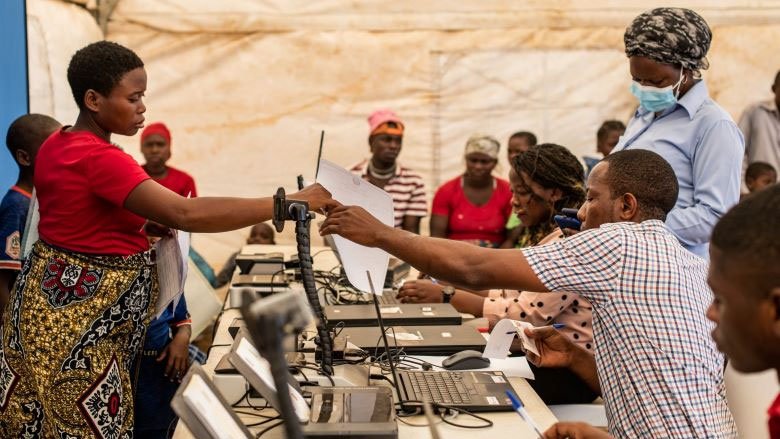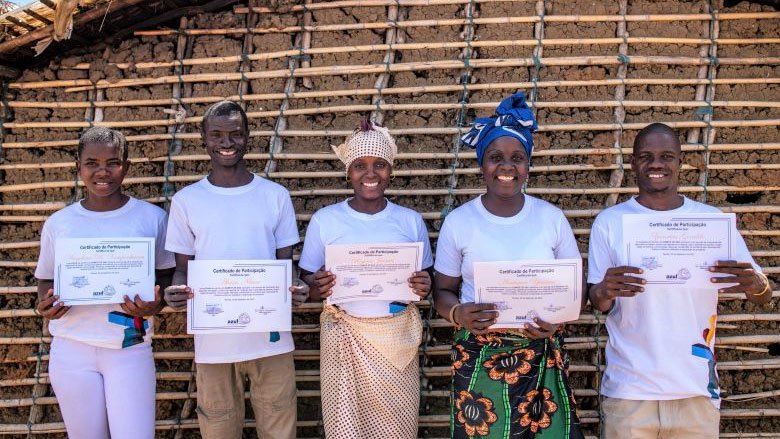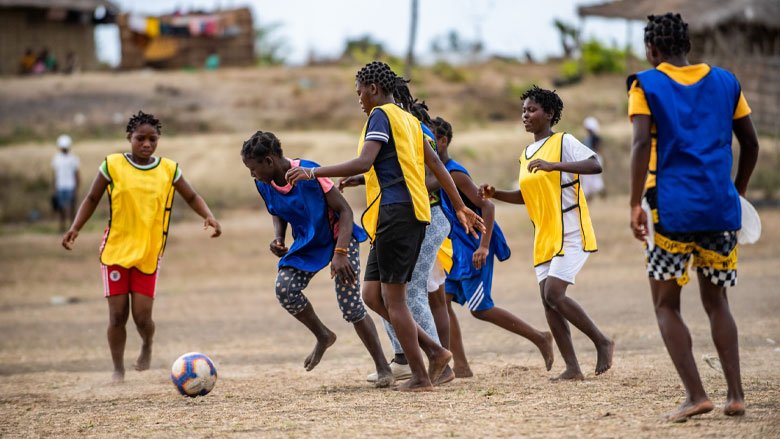Metuge, June 2023–When an armed group began attacking their coastal village in the middle of the night, Ancha Issufo and her three teenage daughters were forced to flee by sea. That would be the last time Ancha would see her husband. Ancha and her girls fled from Mocímboa da Praia District in Mozambique’s northern province of Cabo Delgado to Pemba, the provincial capital, around 200 km away.
“We spent four days on a crowded boat, leaving everything behind: our clothes, belongings, and documents,” she says sadly. When they finally reached safety, they moved into one of the five relocation sites for internally displaced persons in Metuge District, on the city’s outskirts.
Ancha is among the 800,000 people displaced by the ongoing violent conflict in Northern Mozambique over the past five years. Hundreds of thousands across the volatile region face severe hunger and recurrent epidemics. Many have lost their families, homes, and livelihoods. Displaced, paperless, and jobless, Ancha and many others have struggled to rebuild their lives in a foreign place.
Civil registration for people displaced by conflict
Two years after arriving in Metuge, Ancha, and her daughters have found new hope, livelihoods, and ways to integrate into the community with help from the World Bank, the Government of Mozambique, and other partners.
“Although far from home, life has returned to some degree of normalcy. We got new identification documents, which have allowed two of my daughters to return to school and another to join a local sewing course,” said Ancha.
For the past three years, the World Bank has supported the Government of Mozambique in addressing early recovery activities in the conflict-torn northern region through the Northern Crisis Recovery Project (NCRP). The project is helping repair public infrastructure and foster social cohesion, supporting not only those displaced but also the communities that host them. The aim is to support Cabo Delgado’s longer-term recovery and development, mitigating conflict risks and building resilience. On the ground, people are gradually finding work, resuming economic activities, and recovering access to essential services.
To this end, the World Bank helped the government to successfully pilot a “one-stop-shop” process that enables people to obtain a birth certificate and a national identity card at the same location, at the same time, and at no cost.
“The registration process started in May 2022 and gradually covered 15 relocation sites in southern Cabo Delgado, attending over 75,000 beneficiaries to acquire their identification documents. Going forward, the NCRP is helping the government to resume civil registration services in the northern districts, allowing local authorities to provide this service to returnees,” said Lizardo Narvaez Marulanda, World Bank Task Team Leader for the NCRP.
This initiative, supported through the Digital Governance and Economy Project (EDGE), the Identification for Development Initiative (ID4D), and the NCRP, prioritized those who lost their personal identification documents due to conflict and those most likely to have difficulties obtaining official documentation.
“These successful efforts in the North have provided a blueprint for increasing access to civil registration and identification for vulnerable people across Mozambique,” added Olivia Rakotomalala, World Bank Senior Public Sector Specialist.
Restoring dignity, hope, and livelihoods
Beyond an identification document, people displaced by violence need livelihoods and social integration to recover their sense of dignity. Peacebuilding committees, skills training, and economic opportunities are some of the ways the project is helping meet this need.
"More than running away from violence, we need to recover our dignity as citizens of this country,” said Ancha. She now divides her time between caring for her daughters and being a member of one of the 28 newly established Peacebuilding Committees.



